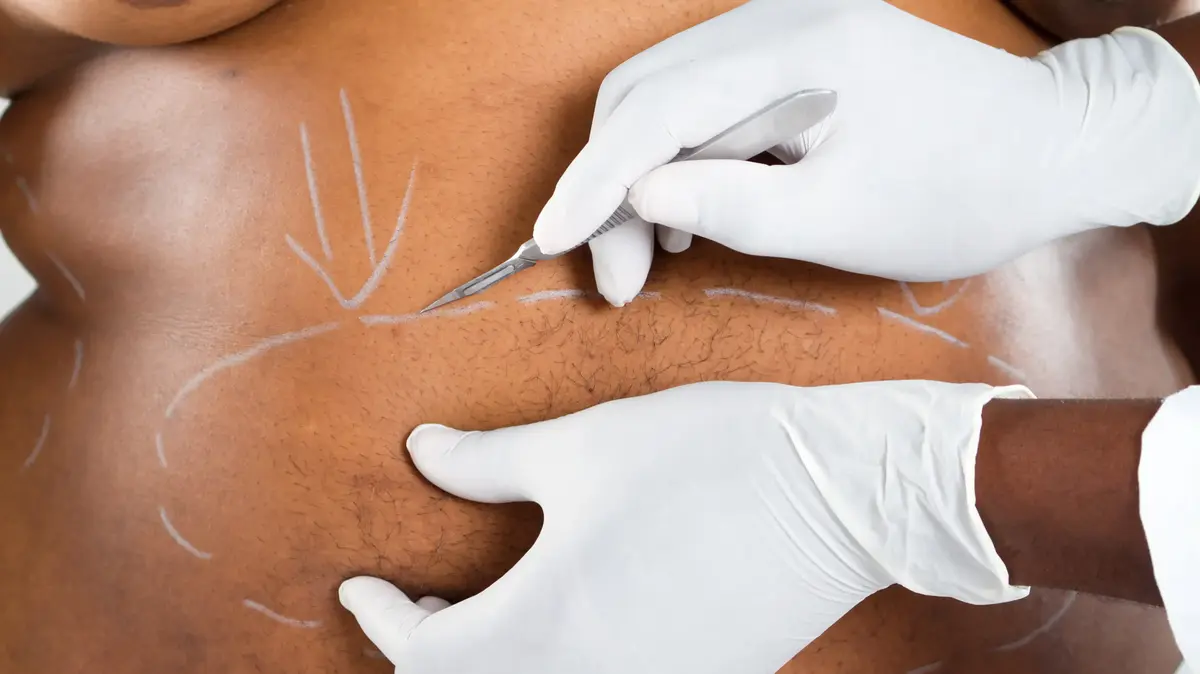Medical Malpractice in Stomach Abbreviations - The Abbreviated Guide to the Confused Plaintiff
Moroccan obesity is defined by the World Health Organization as a 21st-century epidemic and is the second cause of death after smoking. In this situation, diets fail to respond and in order to solve the problem effectively it is usually required by a surgical intervention known as bariatric surgery. Seagull from risks
(Illustration: ShutterStock)
Stomach shortening (Photo: ShutterStock)
There are various types of bariatric surgery: gastric shortening, gastric adjustable ring installation, gastric bypass and more. These are complex surgeries, sometimes involving complications, some of which are inevitable. Alongside these, there are also quite a few complications that arise from the neglect of the treating team.
In Israel, obesity has about 5 percent of the population and the sharp increase in bariatric surgeries in Israel has led the Ministry of Health to set guidelines for performing these surgeries in adults (as for children up to the age of 18 there is a separate recurrence). The updated version, published in October 2013, provided precise guidelines and labels for performing the analyzes.
In accordance with this circular, medical malpractice in bariatric surgery may occur at any of the stages of surgery:
Preoperatively
Close examination of whether the surgeon meets the appropriate criteria for performing the surgery. These criteria relate to the BMI index, with at least one of the associated diseases such as hypertension, ischemic heart disease, fatty liver and more. Previous bariatric surgery also constitutes a plot to confirm surgery.
In addition, a preoperative assessment is required to be performed at a surgeon-managed bariatric center. This assessment requires a committee of a multidisciplinary team that includes, among others, a dietitian, psychologist, physician, and anesthesiologist. The committee's findings will be transferred to the surgeon's hospital, which has a bariatric center.
The intended surgeon is also required to undergo a clinical examination battery (imaging and laboratory) prior to making the decision regarding the patient's suitability for surgery and type of surgery including psychiatric evaluation and nutritional training beginning even before surgery.
The preoperative, and many times, at the pre-surgical stage, sign the patient on a consent form to perform the surgery and will usually receive a copy from him to his home so that he can review it and understand the risks involved in performing the surgery. If the patient signed the consent form for surgery without understanding the meaning of the procedure or without explaining the side effects and risks involved, it could be considered as a lack of informed consent, which may serve as the basis for the claim. Also, giving explanations and signing a consent form shortly before the surgery, in a hurry, would not count as informed consent.
It is also important for the professional figure who gives the patient the necessary explanations. Private bariatric surgeons are often assisted by surgeons from various fields of expertise such as orthopedics and urology. If these specialists have provided the patient with unsatisfactory explanations without being able to answer questions raised during the session, this may also be considered negligent.
Indeed, this is what happened to M, who sued the medical center for which she was diagnosed with disability due to surgery of a duodenal bypass last year. In her lawsuit, M. argued that throughout the course she had been made aware that she had a cuff surgery and that the significance of the procedure, the side effects, the need for dietary follow-up and its importance, as well as the expected damages with which she remained and certainly her permanent disability (100%), were not explained to her at all and if they were explained to her, She would not agree.
As a result of the surgery, a medical disability claimant suffered from a congestion that included, among other things, considerable gastrointestinal disorders and many stomach infections. M. sued the medical institution where it was analyzed, the municipality it owns and the State of Israel for NIS 1,270,000.
(Illustration: ShutterStock)
Doctors in operating room (Photo: ShutterStock)
During surgery
During surgery, there are various actions that can be negligent, such as over-tight sewing that will cause stomach upset; On the other hand - insufficient tightening of the ring that will lead to its fall and will require repeated surgery; Leaving devices in the stomach that may cause leakage or puncture; Creating too little stomach; Avoiding the use of the roll to ensure stomach size and more.
This is the place to emphasize that not all complications in surgery will be considered as a result of medical malpractice. If there was a suspicion of negligence, each case should be examined on the basis of the surgeon's analysis report and medical record.
After surgery
In accordance with the guidelines, each surgeon must remain under medical supervision at the bariatric center or community setting. Close monitoring will include dietician counseling, training and supervision for at least six sessions in the first year. The surgeon is further required to be psychologically monitored; Monitoring the family doctor and maintaining a periodic routine - in particular diabetes monitoring, nutritional deficiencies and bone health.
As mentioned earlier, not every failure in surgery is the result of medical malpractice. Anyone claiming against this background will have to prove that there is a direct link between the medical damage done to him and the caregiver's negligent conduct. To understand when such a relationship exists and when, it is advisable to consult a knowledgeable lawyer in the field to examine the prosecution's chances.
Lawyer Meirav Eshel deals with personal injury, medical malpractice, negligence, car accidents, work accidents, Social Security and represents plaintiffs against hospitals, health funds, insurance companies and private entities.
Phone: 077-2314664
The article was written in collaboration with a legal zap website
The information presented in the article does not constitute or replace legal advice and does not constitute a recommendation for taking proceedings or avoiding proceedings. Anyone who relies on the information contained in the article does so at his own risk.

